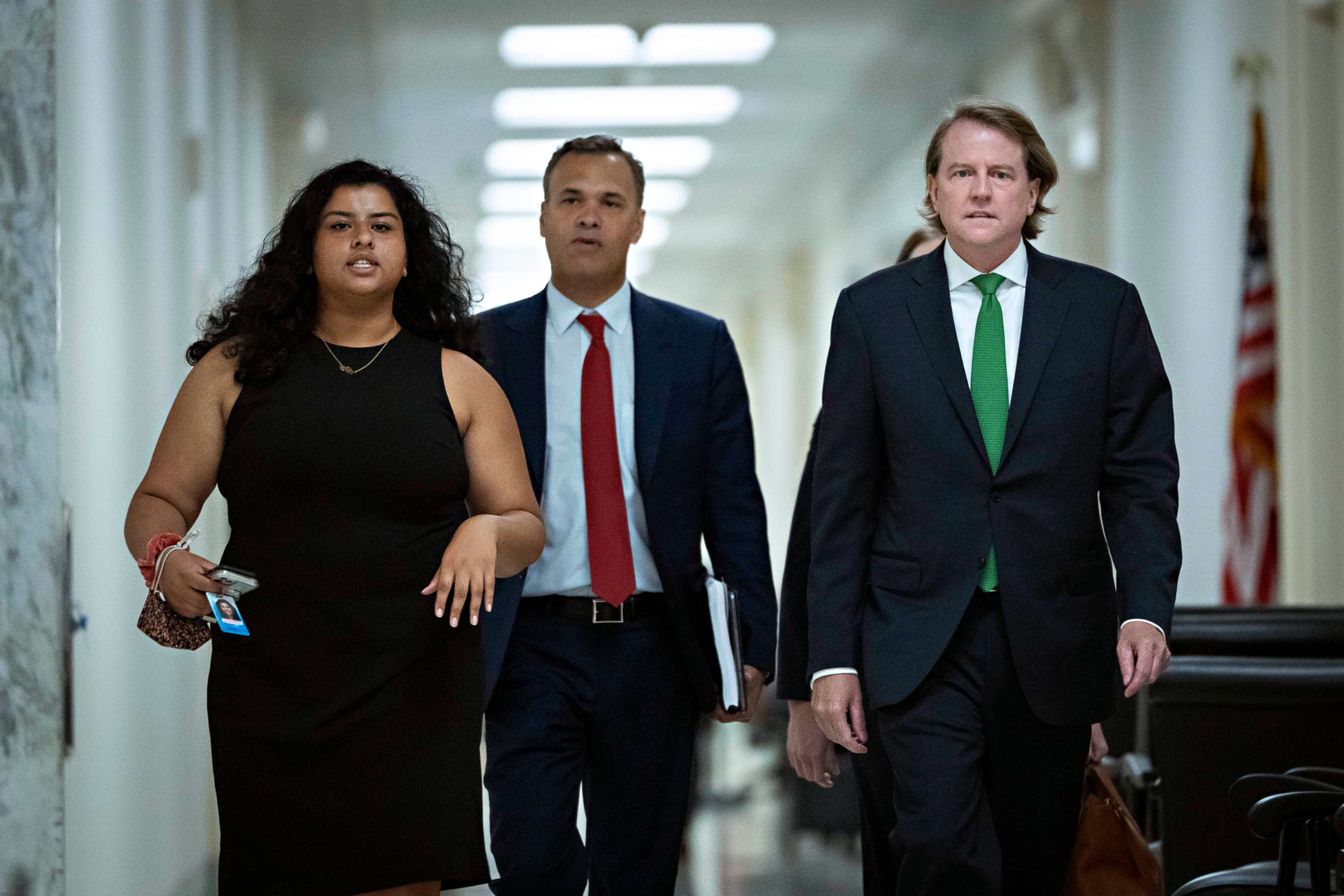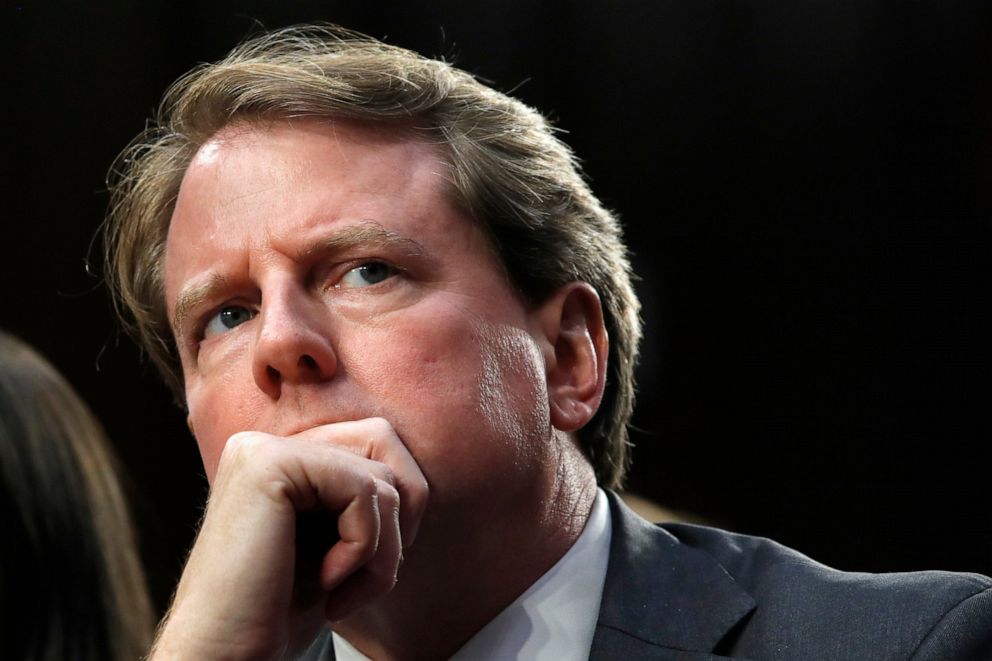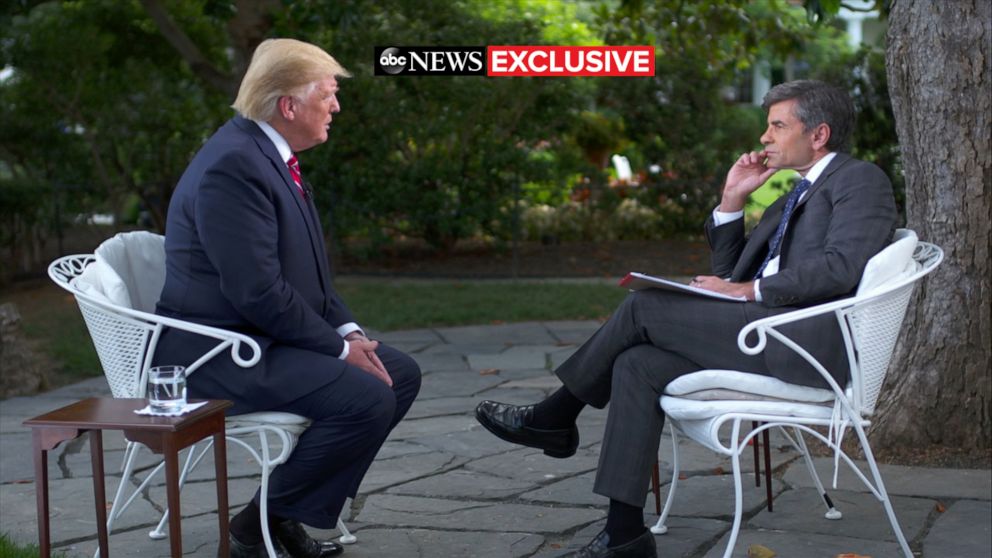Democrats say former Trump White House counsel Don McGahn 'shed new light on several troubling events' in long-awaited testimony
Democrats have staged a yearslong effort to enforce a subpoena.
Former White House counsel Don McGahn appeared before the House Judiciary Committee Friday following a yearslong effort by Congress to enforce a subpoena demanding McGahn's testimony about events related to former special counsel Robert Mueller's Russia investigation.
His testimony, behind closed doors, was secured last month after the Justice Department, the committee and McGahn reached a tentative agreement on his appearance. Former President Donald Trump was not a party to the agreement.
Trump, through his former deputy White House counsel Patrick Philbin, has made clear to the committee he doesn't intend to attempt to block McGahn from testifying, sources told ABC News. Scott Gast, another former White House lawyer, was to attend McGahn's testimony.
Judiciary Chairman Jerry Nadler, D-N.Y., said in a statement following the testimony that "McGahn was clearly distressed by President Trump’s refusal to follow his legal advice, again and again, and he shed new light on several troubling events today."
Nadler did not say what the new revelations were, but added a full transcript would be released "as soon as we can."

During a quick break earlier in the day, Nadler spoke briefly with reporters. Asked what it means to have McGahn available to question after the two-year battle, Nadler said, "It vindicates the congressional subpoena right."
Later Friday, when asked if McGahn seemed cooperative, Nadler said, "I think he’s cooperative," adding a few minutes after that, "I think he's being somewhat difficult, but you'll see that when the transcript comes out."
GOP Reps. Jim Jordan, R-Ohio and Matt Gaetz, R-Fla., spoke to reporters a few hours later, both men criticizing House Democrats for bringing back what they called an old investigation and saying the interview did not reveal any new information.
The terms of the interview state that McGahn will not discuss any communications he had with employees of the executive branch that aren't in the publicly available portions of the Mueller report. McGahn can also discuss whether Mueller's report was an accurate reflection of McGahn's comments to investigators and whether his statements were truthful.

Mueller had requested to speak with McGahn about the circumstances surrounding former FBI Director James Comey's firing and his reported involvement in the events surrounding former Attorney General Jeff Sessions' recusal from the Russia investigation.
The interview will be transcribed and reviewed by all parties within seven calendar days before it is made public.
In an exclusive June 2019 interview with ABC News' George Stephanopoulos, Trump said McGahn "may have been confused" when he told Mueller that Trump instructed him multiple times to have the acting attorney general remove the special counsel because of perceived conflicts of interest.
"The story on that very simply, No. 1, I was never going to fire Mueller. I never suggested firing Mueller," Trump told Stephanopoulos.
When Stephanopoulos pushed back and referenced McGahn's testimony, Trump was defiant.
"I don't care what (McGahn) says, it doesn't matter," Trump said. "That was to show everyone what a good counsel he was."

In August 2019, House Democrats filed a lawsuit to enforce their subpoena demanding McGahn testify -- a move that sharply escalated their dispute with the White House by sending the fight over a key witness in Mueller's report to court for a resolution.
McGahn spent more than 30 hours with Mueller's investigators and Trump had refused to allow McGahn to provide testimony to Congress.
McGahn's successor, former White House counsel Pat Cipollone wrote in a letter to the committee "that McGahn is absolutely immune from compelled congressional testimony with respect to matters occurring during his service as a senior adviser to the President."
In November 2019, a federal district judge ruled that McGahn must comply with a congressional subpoena. But then, the Justice Department appealed that ruling and in February 2020 won out in the higher court.
A hearing in the case was scheduled last month but did not occur due to the agreement.
ABC News' Soorin Kim contributed to this report.




